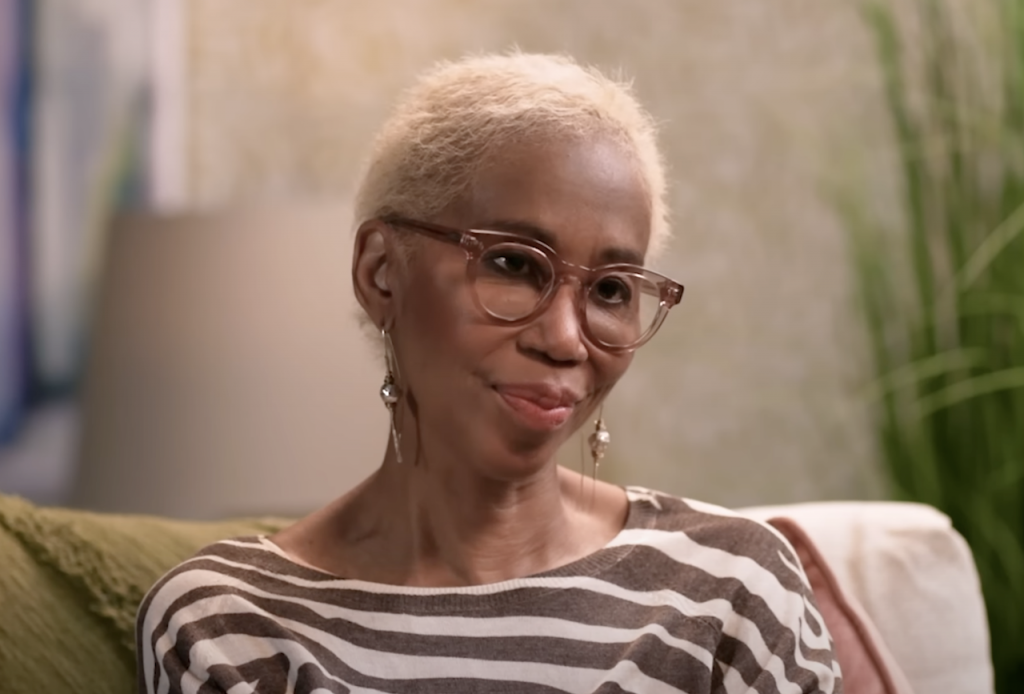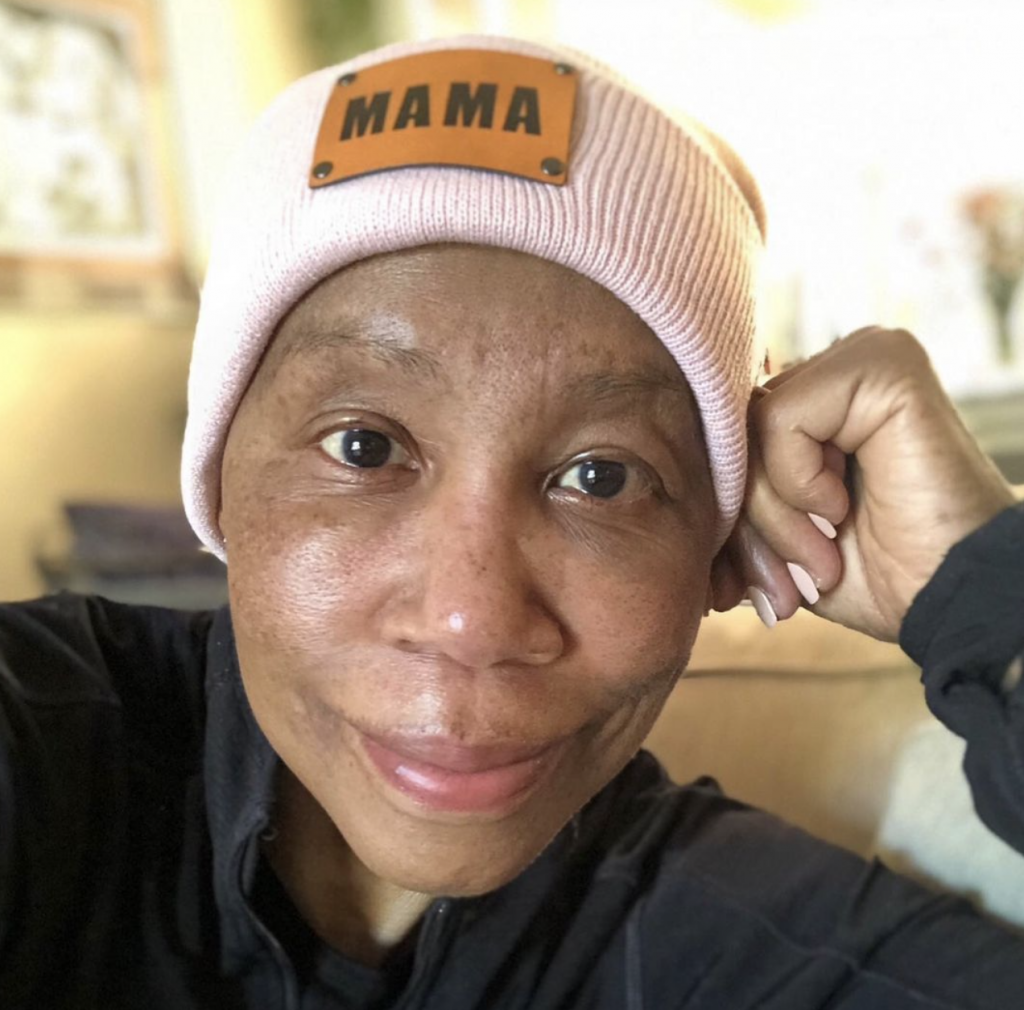Managing Mental and Emotional Health
- Veteran journalist Trisha Goddard, 67, who also participated on “Celebrity Big Brother” this year, explains one of her tactics she uses to combat scan-xiety – the anxiety many cancer patients face before receiving cancer scans to learn the progress of their treatment – is ice skating.
- Goddard was first diagnosed with breast cancer in 2008, and after going into remission, the cancer returned a couple of years ago after hurting her hip while exercising. Doctors discovered cancer cells had returned as stage 4 or metastatic cancer.
- Goddard was treated with several weeks of radiation and chemotherapy. She says she is focused on “life-prolonging care” from now on.
- “Scanxiety” is a feeling of anxiousness patients tend to experience leading up to or following a cancer scan or test. Psychiatrist Dr. Samantha Boardman suggests exercise, participating in some form of art, listening to music, or doing an activity to take your mind away from potential scan results.
- Metastatic breast cancer means the cancer cells have spread from the breast to other parts of the body. Breast cancer spreads through the bloodstream or lymphatic system. The blood carries cancer cells to different body parts, where they grow as new tumors.
- Although metastatic cancer is not considered curable, many treatment options exist today that can extend your life and improve your overall day-to-day quality of life.
“Nature and a good giggle…What better way to deal with scanxiety?” she wrote on Instagram, naming the all-too-familiar anxiety that builds around cancer check-ups.
Read More

“When I was ill and going through treatment, he was so supportive,” she told Hello Magazine.
She believed she had closed that chapter—until two years ago, when a series of exercise-related injuries raised red flags. After a fall at home, she feared she’d fractured her leg. But scans revealed something far more serious: cancer cells in her hip. It was a recurrence of her original breast cancer, now classified as stage 4.
“It’s not going to go away,” Goddard said candidly, acknowledging the grief and fear that followed her diagnosis.
When “Celebrity Big Brother” producers reached out again earlier this year, Goddard accepted—with purpose. She wanted to show viewers “how you can live successfully with cancer and not be so scared of dying that you become scared of living,” she told Metro News.

“My oncologist is my biggest cheerleader and is working with the Big Brother team. I’ve got a special therapist who’s happy to work with the medic on the show,” she added.
From pioneering daytime television in the UK as the first Black British woman to host her own talk show, to ice skating through scanxiety, Trisha Goddard continues to redefine what it means to live boldly.
Helping Patients Manage Their Mental and Emotional Health
- 5 Simple Things People With Cancer Can Do To Care For Their Mental Health
- Caring For Mental Health During The Thyroid Cancer Journey: A Holistic Approach to Healing
- Changing the Culture: Medical Professionals Shouldn’t be Ashamed to Seek Mental Health Treatment
- How Can Genetic Testing Help Determine the Right Form of Mental Health Treatment?
- How to Be Realistically Optimistic: Coping With Mental Health Long-Term
Goddard’s Cancer Is Metastatic
Metastatic breast cancer (also called stage 4) means the cancer cells have spread from the breast to other parts of the body. Breast cancer spreads through the bloodstream or lymphatic system. The blood carries cancer cells to different body parts, where they grow as new tumors.
The cancer may spread to the liver, lungs, or bones, as is the case with Goddard.
WATCH: What Are the Treatment Options for Late-Stage Breast Cancer?
As the disease spreads to other areas of the body (metastasis), it may cause additional symptoms depending on the area the cancer has spread:
- Bones: Severe bone pain or fractures
- Lungs: Difficulty breathing, chest pain, new cough
- Liver: Yellowing of the skin (jaundice), abdominal pain, nausea, and/or vomiting
- Brain: Headaches, memory loss, changes in vision, seizures
Although metastatic cancer is not considered curable, many treatment options exist today that can extend your life and improve your overall day-to-day quality of life. There have been incredible advances when it comes to treating breast cancer in recent years, including major progress in treating HER2-positive breast cancer and triple-negative breast cancer.
Breast cancer is sometimes classified as either local, regional, or distant.
- Local: Cancer is located in the breast and has not spread
- Regional: Cancer spreads from the breast to nearby lymph nodes
- Distant: Cancer spreads to distant parts of the body, including bones, liver, lungs, and/or brain
Goddard was treated with several weeks of radiation and chemotherapy. She says she is focused on “life-prolonging care” from now on.
“When you go to the doctors in the (United) States, there’s a choice of three little boxes you tick for treatment of stage 4 cancer. One is cure, one is life-prolonging, and one is palliative. There’s that awful feeling when you’re sitting there thinking: ‘Which one?’ and mine is life-prolonging,” Goddard explained.
Easing “Scan-xiety”: Psychiatrist Shares Tools to Reclaim Calm and Control
Waiting for scan results can feel like holding your breath underwater—uncertain, isolating, and emotionally draining. This intense stress, often called “scan anxiety”, is a common experience for cancer patients and survivors. But according to Dr. Samantha Boardman, assistant professor of psychiatry at Weill Cornell Medicine, there are proven psychological strategies that can help.
“Scan anxiety is unbelievably stressful,” Dr. Boardman told SurvivorNet.
“Probably one of the best antidotes that psychology can offer patients is to experience flow.”
What Is “Flow”—and Why It Works
“Flow” is a mental state where you become fully absorbed in an activity—so much so that time seems to disappear. It’s not just a distraction; it’s a therapeutic shift that quiets the mind and restores emotional balance.
“How can we experience flow in our daily lives? It’s usually in some form of a hobby, something we just do because we love doing it,” Dr. Boardman explained.
“I really encourage patients to find and experience something that gives them flow. It might be baking, gardening, or even doing housework. They’re so immersed in the experience that they’re not thinking about anything else.”
Dr. Boardman recommends engaging in activities that naturally promote flow. These include:
- Exercise – even light movement can help regulate stress hormones
- Art or creativity – painting, journaling, or crafting can offer emotional release
- Music – listening or playing can shift your mental state
- Hobbies – anything you enjoy that pulls your focus away from worry
The goal isn’t to ignore your feelings—it’s to give your brain a break from the loop of fear and uncertainty.
For patients feeling overwhelmed, Dr. Boardman suggests a straightforward journaling exercise to help reframe anxious thoughts. Start by drawing four columns on a sheet of paper:
- What I don’t know
- What I do know
- What I can’t control
- What I can control
“I’ll ask patients to write down what I don’t know, what I do know, what I can’t control, and what I can control,” she said. Then, “a helpful way to dial down their anxiety” is to “try to move as many items as possible into what they know and can control.”
This visual mapping helps externalize worry and empowers patients to focus on what’s actionable. It’s a small but powerful way to feel less at the mercy of uncertainty.
When anxiety takes hold, it’s easy to feel powerless. But tools like flow and cognitive reframing offer a path back to emotional steadiness. They don’t erase the fear—but they help patients reclaim space for peace, presence, and perspective.
Why Goddard Chose to Delay Sharing Her Diagnosis
Goddard was worried her cancer diagnosis would have a negative impact on her ability to work as a journalist.
“My worry is that people will start seeing me as a frail little thing and that if [the news] got out, I’d be judged, or people would change the way they are with me, or that I wouldn’t work,” Goddard said.
“It gets to a stage, after a year and a half, when keeping a secret becomes more of a burden than anything else,” Goddard added as her reason for going public with her cancer recurrence.
WATCH: Sharing a Diagnosis
Some people battling a disease or cancer are open to sharing their experiences as much as they can, while others prefer to keep it to themselves or close loved ones. SurvivorNet experts say both approaches, and everything in between, are valid.
“Patients who have just been diagnosed with cancer sometimes wonder how they are going to handle the diagnosis of cancer in social situations,” psychiatrist Dr. Lori Plutchik explains.
Questions like “How much information should they share and with whom should they share the information?” are things Plutchik says patients take into consideration.
Dr. Plutchik explains, “There is no one right way to handle this diagnosis. People should do what feels right to them.”
A cancer journey can last months to years, which means cancer warriors may be experiencing a lot of uncertainty until they fully understand where their health stands. This uncertainty can influence when a cancer patient is ready to share their diagnosis, Dr. Plutchik further explained.
Dr. Plutchik stresses that those close to a person going through cancer should be respectful of their wishes when it comes to disclosing their diagnosis and seeking support.
Learn more about SurvivorNet's rigorous medical review process.

